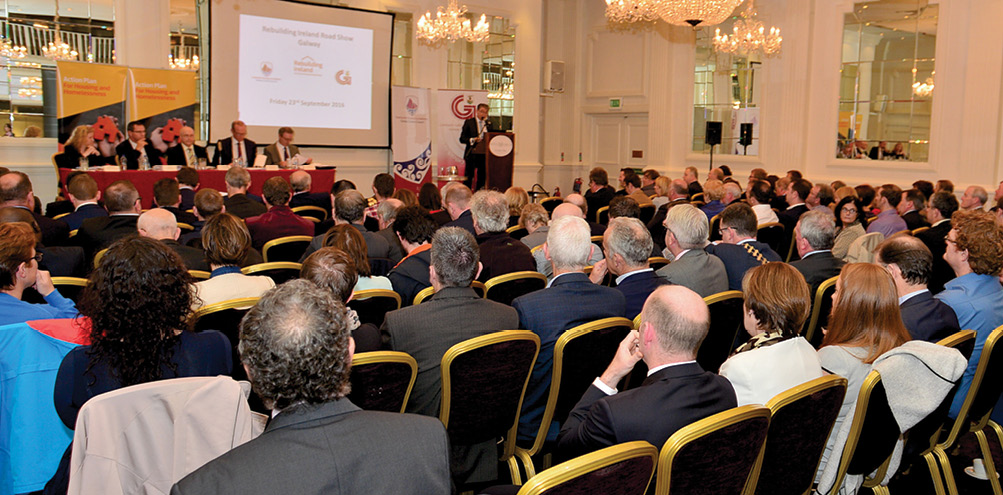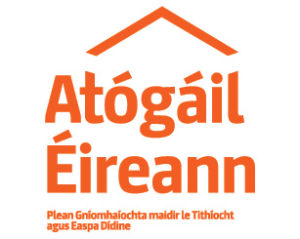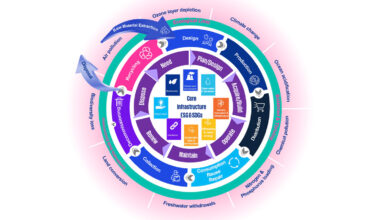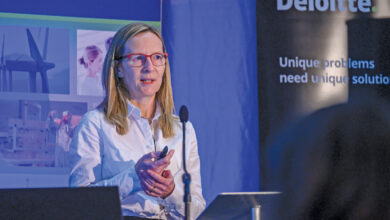Rebuilding Ireland: progress to date


Since the launch of the Rebuilding Ireland: Action Plan for Housing and Homelessness, in July, the focus has moved swiftly on to implementation and co-ordination of actions. Responsibility for advancing each of the 84 actions across the five pillars of the action plan has been assigned to relevant heads of business units, both within the Department of Housing, Planning, Community and Local Government, and in other key departments and agencies, who are leading on specific policies.
In terms of making significant early progress on some key actions, the following developments will have a particularly significant on-going impact on our capacity to meet both current and emerging housing needs:
- Extending the use of the HAP Homeless pilot in Dublin, with 530 of the end-year target of 550 tenancies in place as at end September;
- the launch of Abhaile – the new national Mortgage Arrears Resolution Service – and the associated scheme of aid and advice for borrowers in mortgage arrears;
- plans to provide further family and child welfare supports for homeless families such as Home School Community Liaison services through education welfare officers, Tusla’s work on School Completion Programmes and Leap travel cards for families and children living in hotels and other emergency accommodation;
- establishment and early activation of the Housing Agency’s €70 million rolling fund to purchase vacant properties from banks, and investment companies, with the Agency expecting to acquire or contract to acquire over 200 properties by the end of this year;
- establishment of the Housing Delivery Office (HDO) within the Department of Housing, Planning, Community and Local Government, which is already active in assisting and advising local authorities, AHBs and other stakeholders to help increase and accelerate housing provision;
- one such area in which the HDO has been instrumental is the identification, in early November, of 23 major urban housing development sites with the potential to deliver up to 30,000 additional homes on existing zoned lands and close to the key areas of demand over the next three to four years. These sites, in Dublin, Cork, Galway and Waterford, will be highlighted as exemplars for the co-ordination and delivery of plan-led housing development and active land management.
- funding of a dedicated Student Housing Officer to work with USI, local authorities and other stakeholders in identifying additional rental capacity for returning students, with that resource in place before the start of this academic year;
- providing in regulations for the national roll-out of choice-based letting arrangements or equivalent systems for local authorities to help streamline the letting of social housing and house prospective tenants more quickly;
- the launch of the Repair and Leasing Scheme (RLS), on a pilot basis in Waterford and Carlow in early October. The scheme will bring vacant houses back into use by providing funding to repair them and make them available as new homes for families on local authority waiting lists. It is expected that 150 units will be delivered in 2017. The intention is that the scheme will be available nationally by April 2017;
- key legislative changes, such as new fast-track planning procedures for large-scale residential developments of 100 units or more, tenant protection issues and strengthening the powers and functions of the Residential Tenancies Board, are provided for in the Planning and Development (Housing) and Residential Tenancies Bill 2016. The intention is that the Bill will have concluded all stages by the Christmas recess; and
- development of a new strategy for the residential rental sector is well underway and is due for publication in December.
Reporting progress on an on-going basis
Rebuilding Ireland contains a clear commitment to reporting regular progress, particularly through quarterly progress reports. The first quarterly progress report (in respect of Q3 2016 commitments and actions) was published on 1 November and can be accessed at http://rebuildingireland.ie/First-Progress-Report.pdf.
Further progress reports will follow on a quarterly basis, with the next due to be published in January 2017. Each quarterly report under Rebuilding Ireland will focus on the actions due to be progressed or completed in the preceding quarter.
Governance arrangements
The Cabinet Committee on Housing, chaired by An Taoiseach, is driving and prioritising implementation through its regular review of progress.
Within the Department of Housing, Planning, Community and Local Government, an implementation board of senior officials, chaired by the Secretary General, monitors progress on a fortnightly basis, while Project Working Group structures for each of the five Pillars are in place to ensure that any operational considerations relating to the delivery of actions are identified early and resolved quickly and effectively.
In addition, Minister Coveney chairs a high-level Oversight Group, comprising of senior officials from relevant departments and agencies, along with representatives of the City and County Management Association (CCMA), AHBs and other key stakeholders. The first meeting of this oversight group took place 30 November 2016, with meetings taking place quarterly thereafter. Its primary focus is to assess progress across the range of policy areas, to share views on current and emerging challenges and priorities and to inform wider political and administrative consideration of new policies, initiatives and reforms.
It is also proposed to establish a more broadly – based Stakeholder Forum on Housing and Homelessness, also chaired by Minister Coveney, as a forum for regular feedback on the practical experience of implementation of the various actions. The forum will include a wide representation from the full range of stakeholder groups, including experts from different fields across the sector.
Keeping stakeholders informed
A key part of the successful implementation of Rebuilding Ireland will be ensuring that all stakeholders and the wider public are fully aware of the commitments, understand the range of initiatives and actions being rolled out and can access relevant and up-to-date information on progress.
• A dedicated website, www.rebuildingireland.ie is being used as the central portal to report progress on the implementation of Rebuilding Ireland and to keep the public informed of key developments in relation to the five pillars. Social media is also being used to keep the public informed of progress in an open and accessible way, @RebuildingIRL #RebuildingIreland
• Focused, pillar-specific launches on Addressing Homelessness (Pillar 1); Accelerating Social Housing (Pillar 2); and Building More Homes (Pillar 3) have taken place on 22 September 2016, 6 October 2016, and 10 November respectively. These launches complement the initial launch of Rebuilding Ireland and were designed to build implementation momentum, allowing for a deeper focus on a specific pillar area, with the range of departments/agencies and supporting bodies expanding and elaborating on the actions proposed and also incorporating other views and perspectives on how the initiatives are being rolled out.
• Regional stakeholder events to date have included Limerick (30 August), Cork City (9 September), Waterford (15 September), Galway (23 September), Leitrim/Roscommon (2 December). Further events will be arranged over the coming months to reach as many regions as possible. The aim of these events is to stimulate and encourage active involvement by all key stakeholders at local and regional level to ensure effective collaborative working to secure the best housing outcomes.
Email: rebuildingireland@housing.gov.ie
Twitter: @RebuildingIRL
Web: www.rebuildingireland.ie






